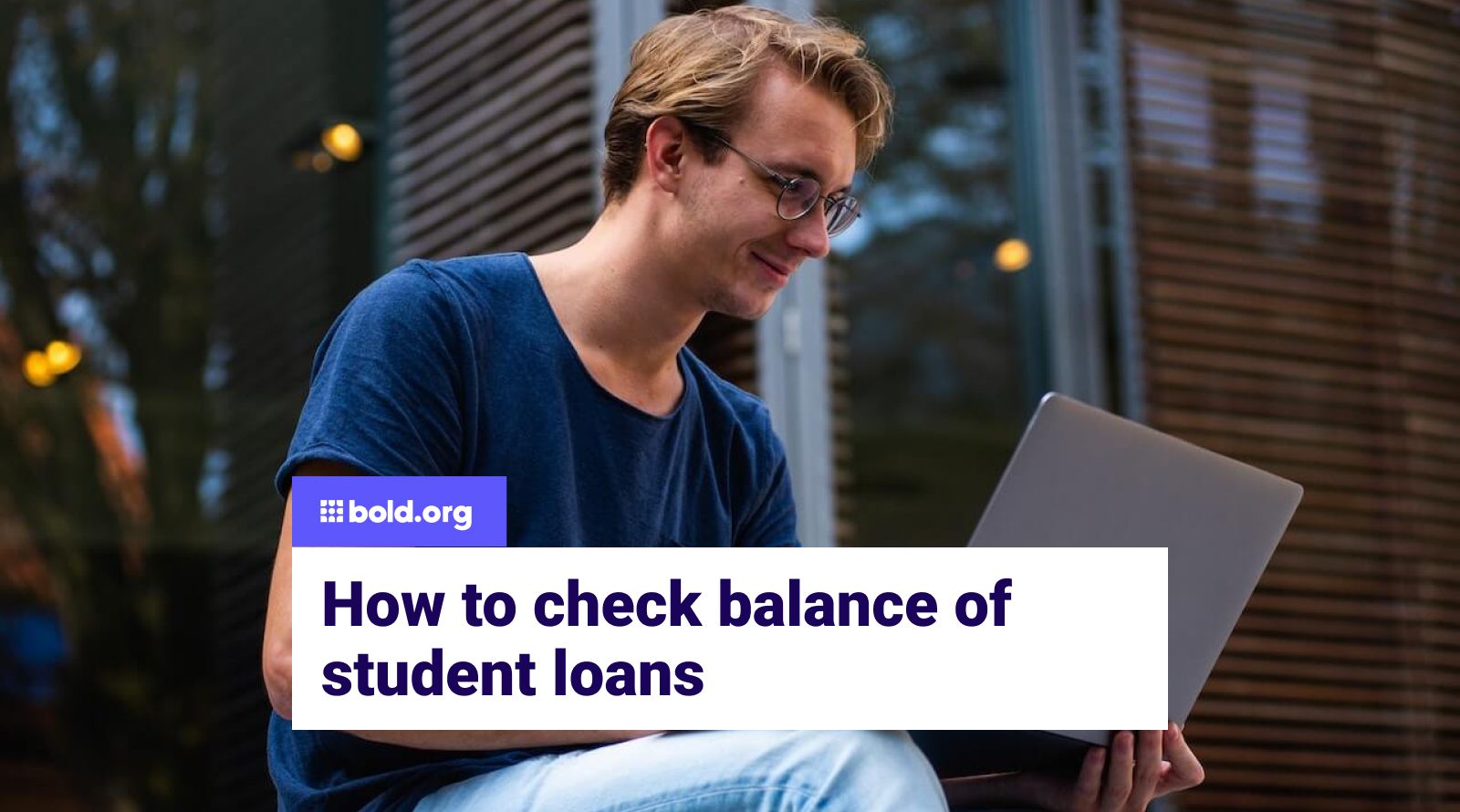Private student loans can be discharged in bankruptcy, but it is a challenging process. Unlike federal student loans, which are rarely discharged, private student loans may be eligible for discharge if the borrower can prove undue hardship. This requires demonstrating that repaying the loan would cause significant financial distress and that the borrower has made good faith efforts to repay the loan. However, discharging private student loans in bankruptcy is difficult due to stricter criteria and the need for legal representation. It is advisable to consult with a bankruptcy attorney to explore the options and navigate the complex process.
Why did my student loans disappear?

If your student loan balance is suddenly showing zero, there could be several reasons for this. One possibility is that your federal or private student loans have been forgiven. Another possibility is that you have completed a student loan forgiveness program. You may also qualify for Public Service Loan Forgiveness (PSLF). Additionally, your original loan servicer may have changed. Alternatively, you may have made enough payments to bring your balance down to zero. However, if you believe your balance should not be zero and you have not received any approval letter for loan forgiveness, it is important to contact your loan servicer. It is important not to assume that your student debt is completely settled just because your balance is showing zero. To ensure that your student debt is truly settled, it is recommended to check with your loan servicer.
What happens to private student loans?
If you have federal government loans, your estate will not be responsible for repaying those student loans. Survivors can apply for a death discharge to cancel the borrower’s federal student loans.
Parent PLUS loans can be discharged if the student, for whom the parent received the loan, passes away. Additionally, if both parents have a PLUS loan and they both pass away, it qualifies for a death discharge. However, if only one of the two obligated parents dies, it does not cancel the PLUS loan.
Private student loans do not have an administrative discharge if you die. These loans will be treated like other debts and will become part of your estate. The process of settling the estate, also known as probate, varies by state. Some private lenders may choose to discharge loans upon the death of a borrower or co-borrower at their discretion.
How do I get rid of private student loans?

After the statute of limitations passes, there are several ways to get out of private student loan debt. These include agreeing to a settlement, obtaining a discharge in bankruptcy, filing a lawsuit against the loan holder, or waiting for the debt to expire.
While there is uncertainty surrounding broad student debt cancellation, with voters hoping for President Joe Biden to fulfill his promise of providing $10,000 in student loan forgiveness to each borrower, it is unlikely that this forgiveness will apply to borrowers with private student loan debt.
Therefore, it is important to take matters into your own hands and find ways to get rid of private student loans. Here are some steps you can take:
1. Seek help: Speak with a student loan consultant who can provide legitimate assistance and guidance.
2. Pause payments: Determine whether deferment or forbearance is a better option for temporarily suspending your loan payments.
3. Lower payments: Explore ways to lower your private student loan payments, such as refinancing or negotiating with your lender.
By taking these steps, you can work towards eliminating your private student loan debt and achieving financial freedom.
Which student loans will be forgiven?
Current students and borrowers with federally held undergraduate, graduate, and Parent PLUS loans distributed on or before June 30, 2022, are eligible for relief, according to Megan Walter, a policy analyst for the National Association of Student Financial Aid Administrators.
The White House has announced that individuals earning less than $125,000 per year or households earning less than $250,000 are eligible for $10,000 in loan forgiveness. Additionally, borrowers who meet the income caps and received Pell Grants during college will receive an additional $10,000, bringing the total forgiveness amount to $20,000.
However, the plan no longer includes borrowers with Perkins loans or Federal Family Education Loans held commercially instead of by the Education Department. This change could leave over 4 million borrowers without relief. To be eligible for forgiveness, these borrowers must have applied to consolidate their loans into a federal direct loan before September 29, 2022, according to new guidance posted on StudentAid.gov by the Education Department. The original plan allowed these borrowers until December 31, 2023, to consolidate and apply for forgiveness.
Why won t they forgive private student loans?

Private student loans do not offer the same protections as federal student loans, so borrowers cannot rely on lenders to forgive their loans willingly. While there have been rare cases of private student loan forgiveness, such as the recent Navient settlement, these instances only affect a small percentage of borrowers under specific circumstances. It took legal action from over 35 states for Navient to agree to cancel some of their private student loans.
Hoping for loan forgiveness from private lenders is unrealistic, and it is unlikely that lenders will forgive loans out of goodwill. Programs like the Public Service Loan Forgiveness Program and the Teacher Loan Forgiveness Program only apply to federal student loans. However, even with federal loans, forgiveness is not guaranteed. In 2020, only a small percentage of applications for the Public Service Loan Forgiveness Program were approved, indicating low odds of success. Serving the community or teaching in low-income areas may be noble, but it will not make student loans disappear.
Unfortunately, private lenders are not obligated to forgive student loans in cases of total and permanent disability or even in the event of the borrower’s death. This lack of compassion is reflective of an industry more focused on profit than helping individuals.
If you are ready to eliminate your student loans, consider using our guide for assistance.
Conclusion
Conclusion:
In conclusion, private student loans can be a burden for many borrowers, as they often come with higher interest rates and fewer forgiveness options compared to federal student loans. While it may be challenging to get rid of private student loans, there are still some options available.
Private student loans are not typically forgiven or discharged through bankruptcy, and lenders are generally less willing to negotiate repayment terms or offer forgiveness programs. However, borrowers can explore alternative options such as refinancing or consolidating their loans to potentially lower their interest rates and monthly payments.
It is important to note that private student loans are not eligible for federal forgiveness programs such as Public Service Loan Forgiveness (PSLF) or income-driven repayment plans. These programs are only applicable to federal student loans. Therefore, borrowers with private student loans should focus on making regular payments and exploring other repayment strategies to manage their debt effectively.
If your private student loans have disappeared, it is crucial to investigate the reason behind it. It could be due to a technical error, a change in loan servicers, or even a mistake on the lender’s part. It is recommended to contact your loan servicer or lender to clarify the situation and ensure that your loans are being properly accounted for.
When it comes to loan forgiveness, it is important to understand that only certain types of student loans are eligible. Federal student loans, including Direct Loans and some FFEL Program loans, may be eligible for forgiveness under specific circumstances. However, private student loans are generally not eligible for forgiveness programs.
In conclusion, while private student loans may be more challenging to get rid of compared to federal student loans, borrowers should explore options such as refinancing, consolidation, and effective repayment strategies to manage their debt. It is crucial to stay informed about the terms and conditions of your loans and to communicate with your loan servicer or lender to ensure accurate and timely repayment.
Sources Link
https://www.tateesq.com/learn/how-to-get-rid-of-private-student-loans
https://www.ramseysolutions.com/debt/private-student-loan-forgiveness
https://www.studentloanborrowerassistance.org/will-my-student-loan-be-discharged-if-i-die/
https://bold.org/blog/how-to-check-balance-of-student-loans/
You are watching: can private student loans be discharged in bankruptcy
